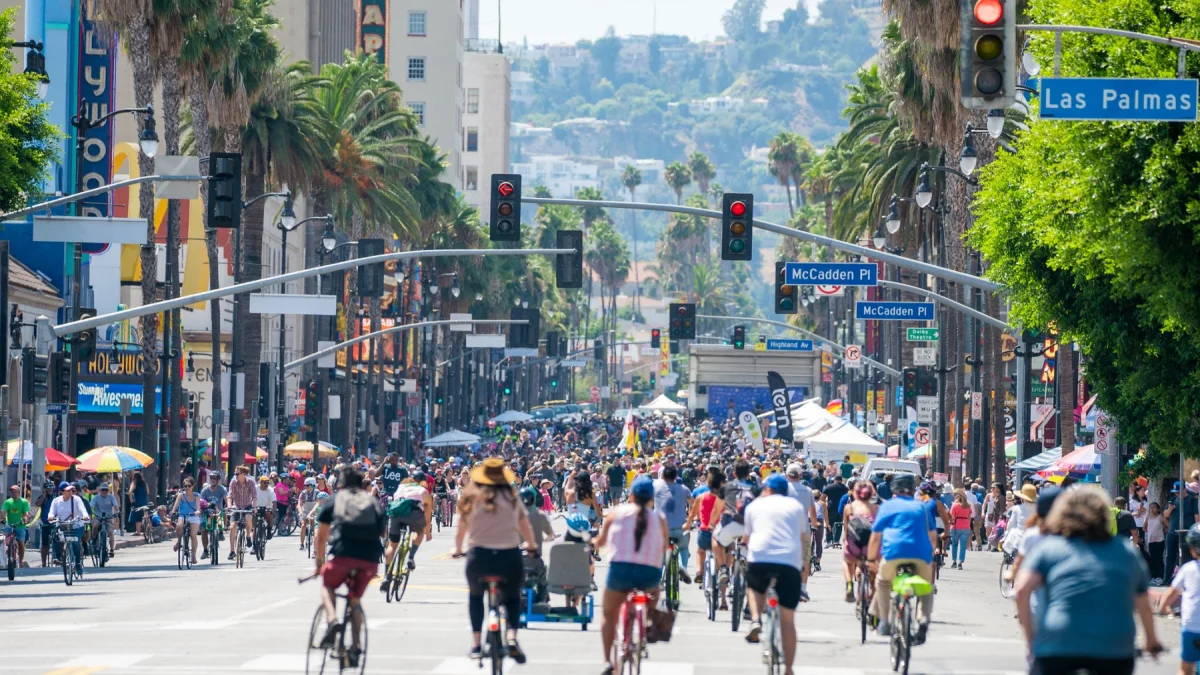The Surprising Effects of Biking on Mental Well-being and Community Engagement
- Dennis Ketterman
- Jan 9
- 3 min read
Biking is more than just a fun way to get from point A to point B. It has impressive benefits for our mental health and helps create strong community ties. As society focuses on wellness, understanding how biking boosts both individual well-being and community spirit becomes crucial. In this post, we will explore the mental health advantages of biking and how it builds connections among people.

Mental Health Benefits of Biking
Biking serves as an effective outlet for improving mental health. Research shows that engaging in physical activity reduces stress, anxiety, and depression. For example, a study published in the Journal of Clinical Psychology found that participants who engaged in regular aerobic exercise, like biking, reported a 25% decrease in symptoms of depression over just twelve weeks.
When we bike, our body releases endorphins, often called "feel-good" hormones. This biological response can uplift our mood and boost happiness. Moreover, biking outdoors exposes riders to nature, which can decrease stress levels. According to the American Psychological Association, spending time in nature can reduce cortisol, a stress hormone, by up to 20%.
Another significant benefit is enhanced self-esteem. Each ride completed, from short trips to longer adventures, can foster a sense of achievement. This boost in confidence helps individuals face life’s challenges with renewed strength. A cyclist feeling empowered is better equipped to handle everyday stressors and maintain a positive outlook.
Biking also provides a form of mindfulness. It encourages people to focus on their surroundings, which creates a break from daily worries. Research indicates that mindfulness practices can reduce anxiety by up to 60%, making biking a natural way to cultivate a present mindset.
Biking and Social Connections
One of the standout benefits of biking is its ability to unite people. Organized group rides, community cycling events, and biking clubs create spaces where like-minded individuals can meet. For instance, cities that host weekly community rides often report increased social connections, with nearly 70% of participants expressing that they felt more connected to others after joining.
Being part of a biking group helps combat feelings of isolation, fostering new friendships through shared experiences and mutual interests. This sense of belonging can lead to significant mental health benefits, as social interaction and emotional support are essential for well-being.
Local biking events provide further opportunities for connection. These gatherings not only enhance social networks but also allow people to discover new neighborhoods. Engaging with local cycling communities can improve emotional health by reinforcing ties to both the local environment and fellow cyclists. A report from the League of American Bicyclists noted that communities that engage in biking events see a 30% increase in civic participation and volunteerism.
The Role of Community Infrastructure
The infrastructure surrounding biking is crucial for enhancing mental health and community connection. Cities with dedicated bike lanes and safe trails encourage more residents to ride. For example, cities like Copenhagen, known for their extensive biking infrastructure, report that over 62% of their population commute by bike regularly. This increased cycling leads to higher community interaction and a collective spirit.

When biking routes are safe and accessible, people feel encouraged to explore their neighborhoods. This exploration fosters a sense of belonging and pride within the community that can uplift mental well-being. Furthermore, a robust biking network increases awareness of local resources, events, and social opportunities, strengthening community bonds.
Biking as a Means of Expression
Biking is also a form of self-expression. Cyclists can customize their bikes, choose unique routes, or participate in themed rides. This personalization allows individuals to showcase their identity and interests, leading to greater fulfillment and happiness. For example, themed events such as "Naked Bike Ride" or color-themed biking festivals attract diverse groups, enabling participants to find their niche in the biking community.
When biking becomes a platform for self-expression, it encourages individuals to share their stories, fostering deeper connections with others who share similar interests. Additionally, cycling advocacy groups often form within communities to promote biking-friendly initiatives. Participating in these groups offers a meaningful way to contribute to societal change, greatly enhancing mental well-being through purposeful engagement.
Final Thoughts
Biking's positive impact on mental health and community engagement is powerful and far-reaching. Whether it's through lifting moods with physical activity, fostering social connections, or enhancing community involvement, biking offers significant advantages for both individuals and the neighborhoods they inhabit.
As more individuals embrace the joys of biking, the potential for healthier lifestyles and strong community ties grows. So whether you're cycling regularly or just considering starting, remember that biking can lead to improved mental well-being and enriched community life.
In the end, biking is more than transportation; it can transform lives and foster lasting connections within communities, showcasing the true power of this simple yet profound activity. And lastly, when you're on a bike. You're car is resting.
















Comments